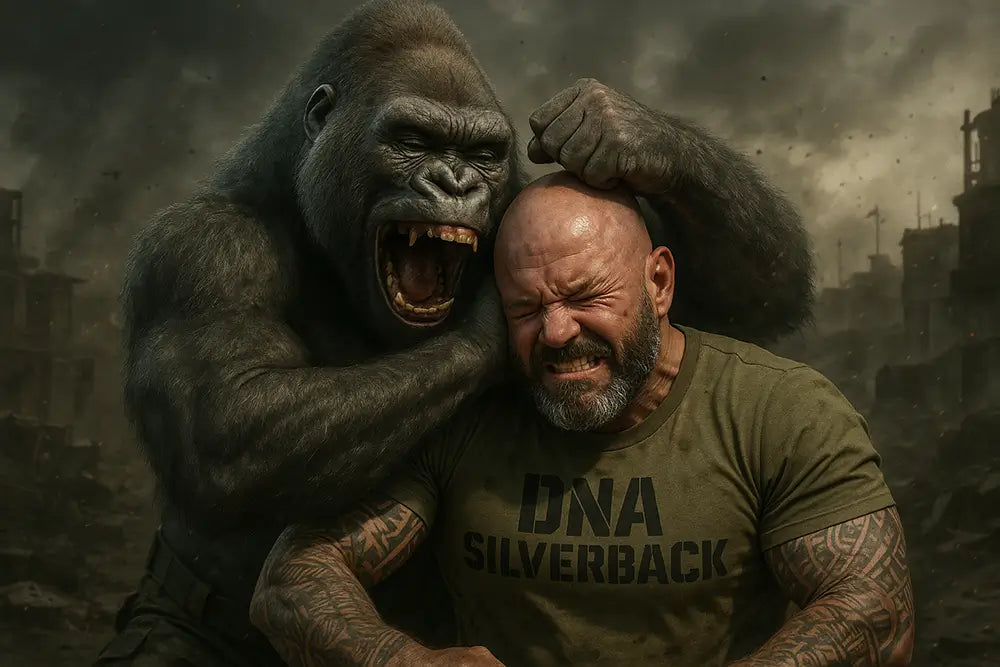Testosterone is a hormone that plays a vital role in the body's functioning and development. It is a steroid hormone that is primarily associated with male characteristics, but it also has important functions in females. In this comprehensive guide, we will delve into all aspects of testosterone, from understanding its biological definition to its impact on the body's vital functions.
We will explore how the body regulates testosterone levels and what causes abnormal levels. We'll also discuss how to diagnose testosterone levels and ways to naturally boost them. So get ready for an informative ride as we cover everything you need to know about testosterone!
Understanding Testosterone: An Overview
Testosterone, a sex hormone produced primarily in the testicles in men and in smaller amounts in the ovaries in women, is key to the development of male reproductive tissues like the testicles and prostate gland.
It also influences secondary sexual characteristics such as muscle mass, body hair, and deepening of the voice.
As we age, testosterone levels naturally decline, potentially leading to various symptoms and health issues. Blood tests can determine if testosterone levels are within the normal range.
So, understanding testosterone and its role in the body is crucial for maintaining physical and mental health. Producing too little or much testosterone can affect your physical and mental health.
Biological Definition of Testosterone
You may already know that testosterone is a hormone produced by both men and women.
However, it is worth noting that men produce significantly higher amounts of testosterone compared to women. This hormone plays a crucial role in the development of male sexual characteristics during puberty. It's responsible for the deepening of the voice, growth of facial and body hair, and even sperm production.
Testosterone also has an impact on sex drive, physical well-being, and mental well-being. Low levels of testosterone can lead to symptoms like fatigue, decreased libido, and loss of muscle mass. In such cases, testosterone therapy under medical supervision can be an effective treatment option for individuals with abnormally low production of testosterone secondary to malfunction of the testes, pituitary, or hypothalamus.
Testosterone: A Steroid?
Testosterone, classified as an androgen and a steroid hormone, plays a crucial role in male sexual development and reproductive function.
While it is a naturally occurring hormone, anabolic steroids, synthetic versions of testosterone, are sometimes misused to enhance athletic performance. One type of testosterone supplement, methyltestosterone, has received approval from the United States Food and Drug Administration (FDA). However, guidelines advise doctors not to prescribe this supplement due to the speed with which the liver metabolises testosterone. It's important to distinguish between legitimate therapeutic use and the abuse of steroids.
Vital Functions of Testosterone in the Body
Testosterone plays a crucial role in maintaining overall health and well-being in both men and women.
In men, this hormone contributes to the development and upkeep of reproductive tissues, bone density, muscle mass, and red blood cell production.
Women also benefit from testosterone, as it helps maintain sexual health, bone strength, and an overall sense of well-being.
Additionally, testosterone has an impact on cognitive function, mood regulation, cardiovascular health, and the amount of testosterone is essential for optimal health. Imbalances in testosterone levels can lead to a variety of health issues and symptoms. So, ensuring the proper levels of testosterone is essential for optimal health.

Role of Testosterone in Men
When it comes to men, testosterone plays a significant role in various aspects of their lives.
This primary male sex hormone is responsible for the development of male reproductive tissues, including the testicles and prostate gland. But its influence doesn't stop there.
Testosterone also promotes the growth of secondary sexual characteristics like muscle mass, body hair, and deepening of the voice, giving men their distinct masculine features, such as facial hair.
Furthermore, this hormone helps maintain bone density, sperm production, and sex drive. However, low levels of testosterone in men can lead to symptoms such as decreased libido, fatigue, and loss of muscle mass.
Role of Testosterone in Women
Did you know that testosterone is not just limited to men?
It's true! Women also have testosterone, although in much smaller amounts. This hormone actually plays a significant role in women's reproductive health. It helps regulate menstrual cycles and supports fertility. But that's not all.
Testosterone also contributes to women's overall well-being, energy levels, and sexual desire. However, imbalances in testosterone levels can lead to symptoms like irregular periods, decreased libido, and mood changes. In certain cases, testosterone replacement therapy may be used to address hormonal imbalances in women.
So, it's clear that testosterone has an important role to play in women's lives too!
Summary
To sum it up, testosterone plays a crucial role in the overall well-being of both men and women.
It affects various aspects of our physical and mental health, including muscle growth, bone density, mood regulation, and more. While age and other factors can impact testosterone levels, there are natural ways to boost them and maintain a healthy balance. Incorporating lifestyle changes, such as regular exercise, a balanced diet, and stress management techniques, can help increase testosterone production.
Additionally, certain foods, like spinach, fatty fish, and avocado, are known to support healthy testosterone levels. Remember, if you suspect any issues with your testosterone levels, consult a healthcare professional who can conduct the necessary tests and provide appropriate guidance. Stay proactive about your hormone health and enjoy a vibrant life!




Share:
Ashwagandha as a testosterone supplement - Fact or Fiction?